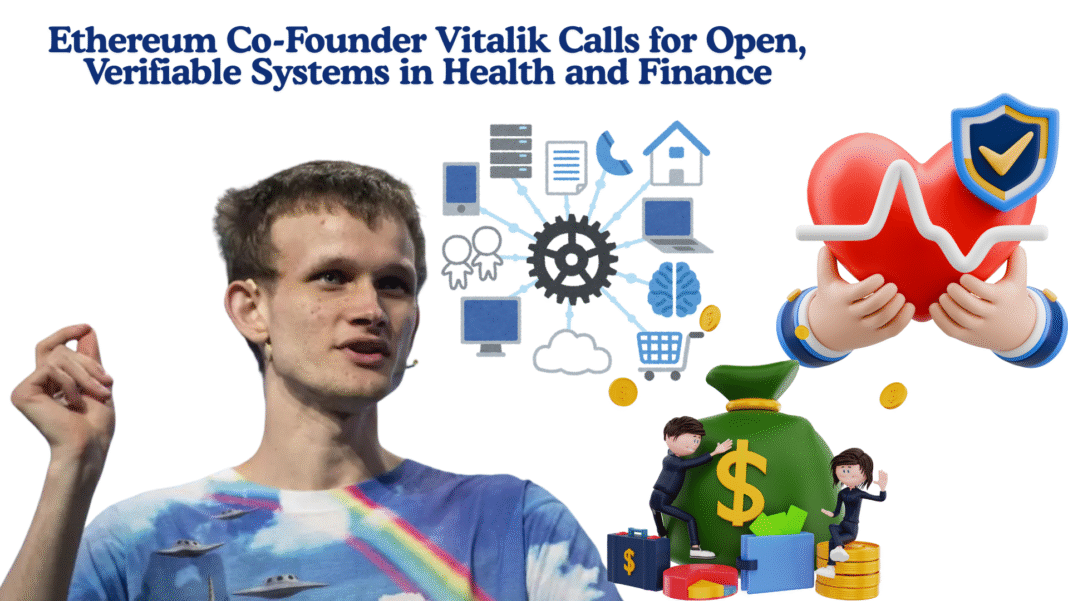Vitalik Buterin, the co-founder of Ethereum, called for a global initiative to replace closed-source non-verifiable systems in healthcare, finance, and governance with open-source verifiable systems.
He stated that the issues posed by reliance on centralized infrastructure have serious trust and safety implications.
In a comprehensive blog post published on Wednesday, Buterin noted that as this infrastructure becomes further integrated into public life, closed and opaque systems create avenues for abuse, monopolization, and reduced public trust.
“The civilizations that benefited the most in previous waves of tech are not generally those who consumed technology, but those who created it,” he wrote, stating that openness can “help stave off potential global disintegration” and spur innovation.
Risks of Centralization in Health and Finance
Buterin emphasized healthcare and finance as two particularly vulnerable sectors to centralization.
He stated that proprietary health technology often creates monopolies on data, limiting access and putting users at risk of being surveilled.
The COVID-19 vaccine distribution demonstrated how the closed manufacturing and communication of vaccines created a lack of transparency and trust, he said.
Conversely, his example of PopVax utilizes open processes by using a system that reduces costs while providing credibility.
For financial services, he pitched the clumsy nature of the frozen $119, 30 minutes to mail a signed form, versus the transaction speed and cost to send money via crypto in seconds.
He said that blockchain technology is already showing that open, verifiable infrastructure provides more efficient alternatives than the outdated state of financial systems.
Push for Open Governance and Voting Systems
Along with health and finance, Buterin called for secure and transparent infrastructure in governance generally and in voting systems in particular.
He expressed doubts regarding electronic voting machines, pointing out that a proprietary “black box” software is not a trustworthy basis for a democratic process.
According to Buterin, by utilizing open hardware and verifiable software, you will create a situation that allows citizens to verify voting results on their own, without relying on a third party or something centralized.
He believes that this would enhance democratic legitimacy and lessen opportunities for manipulation in critical governance processes.
Broader Advocacy for Privacy and Decentralization
Buterin’s latest post fits within his general goal of advocating for privacy and decentralization in the cryptocurrency space.
Early this year, he released a privacy roadmap for Ethereum, inviting the community to think of privacy as an intentional design goal rather than something to tackle later. He also just recently made mention of governance and licensing in crypto.
On June 28th, he articulated that “dual governance” was an imperfect but necessary measure for guaranteeing the long-term viability of Ethereum, facilitating formal participation while seeking to limit centralization, according to UnoCrypto.
Also on July 8th, we reported that he suggested moving towards “copyleft” licenses to ensure the protection of open-source development in an ever-increasing profit-oriented space.
All in all, these positions demonstrate Buterin’s ongoing advocacy for transparency, verifiability, and privacy for blockchain and the existence of these broader systems in the world.


